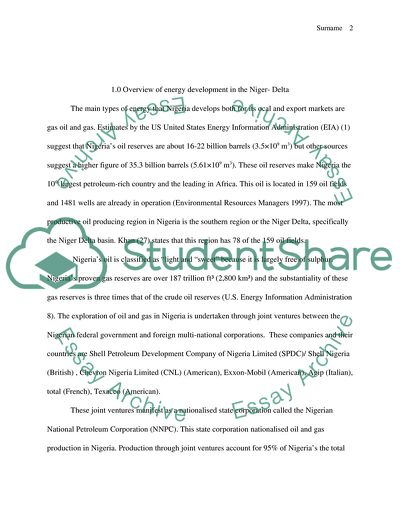Cite this document
(“Sustainable Energy Development, Transportation and Gas Flaring in the Research Paper”, n.d.)
Sustainable Energy Development, Transportation and Gas Flaring in the Research Paper. Retrieved from https://studentshare.org/geography/1773425-sustainable-energy-development-transportation-and-gas-flaring-in-the-niger-delta-nigeria
Sustainable Energy Development, Transportation and Gas Flaring in the Research Paper. Retrieved from https://studentshare.org/geography/1773425-sustainable-energy-development-transportation-and-gas-flaring-in-the-niger-delta-nigeria
(Sustainable Energy Development, Transportation and Gas Flaring in the Research Paper)
Sustainable Energy Development, Transportation and Gas Flaring in the Research Paper. https://studentshare.org/geography/1773425-sustainable-energy-development-transportation-and-gas-flaring-in-the-niger-delta-nigeria.
Sustainable Energy Development, Transportation and Gas Flaring in the Research Paper. https://studentshare.org/geography/1773425-sustainable-energy-development-transportation-and-gas-flaring-in-the-niger-delta-nigeria.
“Sustainable Energy Development, Transportation and Gas Flaring in the Research Paper”, n.d. https://studentshare.org/geography/1773425-sustainable-energy-development-transportation-and-gas-flaring-in-the-niger-delta-nigeria.


